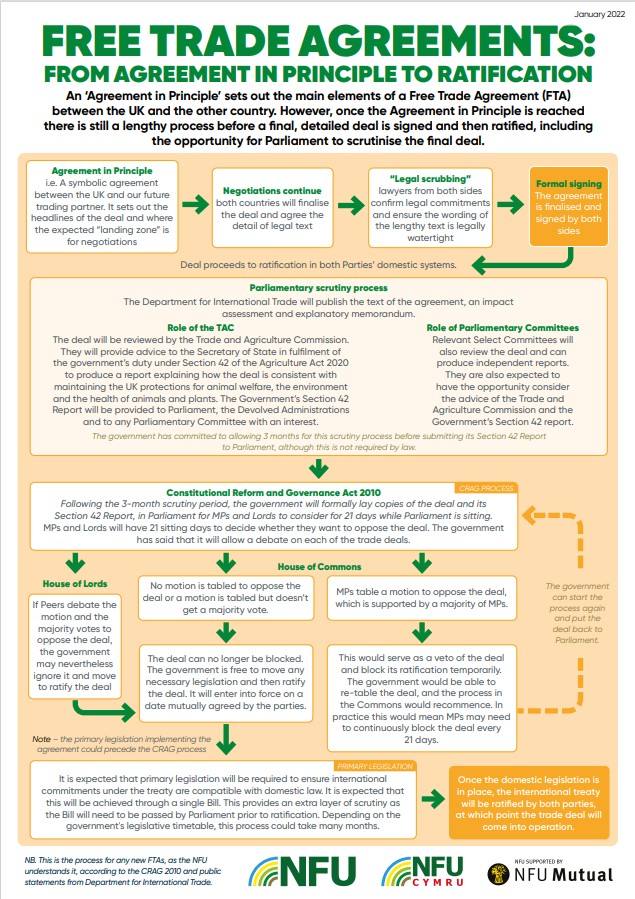In particular, the government has committed to:
- Extend its export campaigns to open and promote new markets and trade opportunities, with the agri-food and drink sector at the core.
- Appoint new, dedicated ‘agri-food attachés’ to act as representatives on the ground overseas to unlock key markets across the world.
- Establish a Food and Drink Exports Council to work collaboratively to expand the UK’s food and drink exports strategy, to adjust to new markets and to compete worldwide.
- Strengthen the UK’s technical expertise as well as farmers’ and producers’ understanding of export markets.
These are welcome commitments, but with our first new FTAs coming into effect imminently, these commitments must be rolled out as a matter of priority, and with sufficient resource and energy, to ensure British farmers can embrace the opportunities ahead.
Agri-food strategy
A comprehensive agri-food strategy to improve productivity as well as increase exports:
- A minister given exclusive responsibility for agri-food trade and competitiveness, working across government and with the devolved administrations to deliver, in partnership with the industry, the ambition set out within the government’s “Made in the UK, Sold to the World” export plan.
- Speedy deployment of agricultural attachés in our embassies in key overseas markets, including effective training and knowledge-building through collaboration with the food and farming industry.
- The establishment of the recently announced UK Export Council, bringing together the four nations’ administrations and the food and farming industry to implement and manage demonstrable improvements in UK agri-food export performance.
- A dynamic and adaptable approach to domestic farm policy that supports improvements in on-farm productivity and competitiveness, and ensures future changes in farm regulation have improved productivity and sustainability at their heart.
A set of core standards
Support for a defined set of core standards, safeguarding our high standards of animal welfare and environmental protection.
Ensuring that our farmers remain at the forefront of sustainable, climate-friendly farming, and that they can continue to meet the public’s expectations in areas such as animal welfare, the government should commit to setting out a list of core standards that would be safeguarded as we increasingly open our markets to imports from countries whose standards may differ from our own.
The government must clearly set out it approach to developing an import policy that safeguards these core standards, whether as part of its FTA programme or its general trade policy.
Constant reviewing and assessing
Continuous review and assessment of the impact, both positive and negative, of our FTAs.
Every FTA should be assessed annually to provide a clear picture of its impact on imports, exports, farmgate and consumer food prices, and the UK’s ability to feed itself, allowing the government to frame domestic policy to best enable British businesses to adapt and benefit from the new arrangements.
The cumulative impact of proposed FTAs must be modelled and published, ahead of any further deals being finalised.

